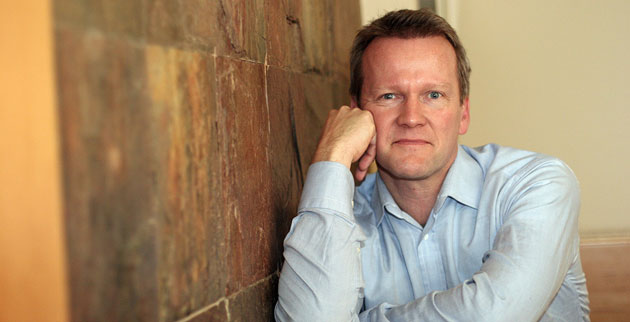
Charter schools, rigorous standards, merit pay and tougher curriculum – these are the ingredients of American school reform. But Finland, the top-ranked country in the world in math, science and reading, has none of these elements. In fact, their approach to reform is exactly the opposite of the approach in the United States.
Pasi Sahlberg will discuss this and other findings in his newly published book, Finnish Lessons: What can the world learn from educational change in Finland?, at a lecture on Friday, Dec. 9. The event is 2–3:30 p.m. in the Wyatt Center Rotunda on the Peabody Campus and is free and open to the public.
In his book, Sahlberg offers a comprehensive account of how Finland built a world-class education system over the past three decades. During his lecture, he will recount the evolution of education policies in Finland and highlight how they differ from the United States.
“Sahlberg will explain how Finland came to have some of the best teachers in the world,” said Stephen Heyneman, professor of international education policy. “In Finland, there is ‘no child left behind.’”
Sahlberg is director general of CIMO, an organization for international mobility and cooperation under the Finnish Ministry of Education and Culture, based in Helsinki, Finland. He has global expertise in educational reforms, training teachers, coaching schools and advising policy-makers. He has worked with policy and research organizations in Finland and as an educational specialist for the World Bank in Washington, D.C., and the European Commission in Torino, Italy.
This event is hosted by Peabody International Affairs and the Department of Leadership, Policy and Organizations.